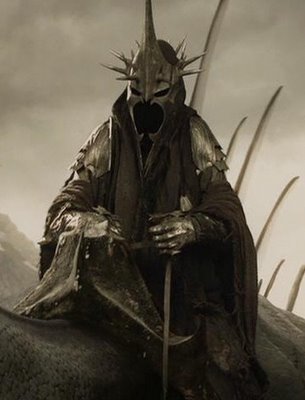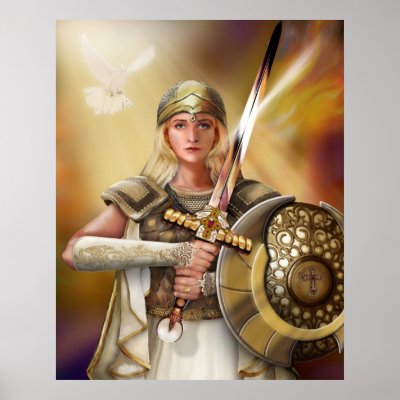Friday 21 December 2012
Since 1959, are we supposed to do something on our own?
Posted by
Supertradmum
There has been no legal restriction on fasting and abstinence since 1959. Before that date, the usual rules were in effect. Some families kept the fasting, as in not eating between meals and having the two meals not equal the third, and the abstinence from meat for years and years.
I heartily encourage fasting and abstinence tomorrow in preparation for Christmas. It make sense to prepare for all the major feasts by penitence.
Because of parties and family gatherings, fasting and abstinence have all but disappeared from the Catholic culture since 1959. Such is progress...but I think not.
Curtailing eating helps us remember why we are here-in this vale of tears-to prepare for the coming of Christ in our lives and in the world.
The Eastern Catholics do a better job on this. Here is a list of their penitential days.
1. All Fridays of the year except when:
a. Great Feasts of the Lord or the Theotokos falls on a Friday
b. Period from Christmas to Theophany
c. From the Sunday of the Publican and the Pharisee to the Sunday of the Prodigal Son
d. Pascha to Thomas Sunday
e. Pentecost to All Saints Sunday
2. To abstain from meat and dairy products on the First Day of Lent and on Good Friday
3. Abstain from meat on
a. Day before Christmas and day before Theophany
b. Exhalation of the Holy Cross
c. Beheading of Saint John the Forerunner
Perhaps your family this year could try to abstain and fast this Christmas Eve. God bless you.
Our Pope and the Navarre Bible
Posted by
Supertradmum
Since 2000, when the volumes started to be sold in Canada and America, one by one, I have loved the Navarre Bible and highly recommend it.
Romans 8 is one of my favourite epistles. This footnote from the Navarre Bible on Romans 8:31-39 is worth quoting in part.
"Provided they are determined to accept all God's help, Christians can be confident of attaining salvation, for God will never withhold from them the graces they need. 'It is not science that redeems man: man is redeemed by love. This applies even in terms of this present world When someone has the experience of a great love in his life, this is a moment of redemption which gives a new meaning to his life. But soon he will also realise that the love bestowed upon him cannot by itself resolve the question of his life. It is love that remains fragile, it can be destroyed by death. The human being needs unconditional love. He needs the certainty which makes him say...If this absolute love exists, with its absolute certainty, then--only then--is man redeemed, whatever should happen to him in his particular circumstances..."
Quotation from Pope Benedict XVI
That the Pope's encyclical, Spe Salvi, is quoted is fantastic, bringing together commentary and exegesis from our own present theologian on the Chair of Peter.
The Song of Songs and Christmas
Posted by
Supertradmum
The poetry of the Song of Songs is written for the Church and for each one of us individually. As Christmas approaches, God calls us to Himself in an intimate relationship of Love. This is one of the meanings of Christmas. Mary, Our Mother, gave us the Bridegroom. She is Mother, Bride, Creation of the Triune God, the Theotokos. The mystery of faith that she brought the God-Man into the world is a mystery of love.
Song of Songs 2:8-14
8 BELOVED: I hear my love. See how he comes leaping on the mountains, bounding over the hills.
9 My love is like a gazelle, like a young stag. See where he stands behind our wall. He looks in at the window, he peers through the opening.
10 My love lifts up his voice, he says to me, 'Come then, my beloved, my lovely one, come.
11 For see, winter is past, the rains are over and gone.
12 'Flowers are appearing on the earth. The season of glad songs has come, the cooing of the turtledove is heard in our land.
13 The fig tree is forming its first figs and the blossoming vines give out their fragrance. Come then, my beloved, my lovely one, come.
14 'My dove, hiding in the clefts of the rock, in the coverts of the cliff, show me your face, let me hear your voice; for your voice is sweet and your face is lovely.'
The Church Militant is the Warrior Bride
Posted by
Supertradmum
I see Eowyn in The Lord of the Rings as a type for the Church. She is a warrior, but only fulfilled when she comes to love a gentle warrior, Faramir, thus finding healing in love. That she is attractive as the "shield maiden" and an accomplished warrior herself, and as she fulfils a prophecy by killing the Witch-King of Angmar, her part in the story is not small. Eowyn beings about healing for her uncle as well.
In the movie, Faramir is not shown as Tolkien intended, although the actor is superb. Faramir is a philosopher, a gentle and wise man, the foil for his brother, the total man of action. That Eowyn weds Faramir is a sign of harmony and completion, as she too, is a woman of action, but must become one of meditation and contemplation, which only happens after her brush with death.
December 21, O Antiphon
Posted by
Supertradmum
- O Oriens,
- splendor lucis aeternae, et sol justitiae:
- veni, et illumina sedentes in tenebris, et umbra mortis.
- O Rising Sun,
- splendour of light eternal and sun of righteousness:
- Come and enlighten those who dwell in darkness and the shadow of death.
Subscribe to:
Posts (Atom)






